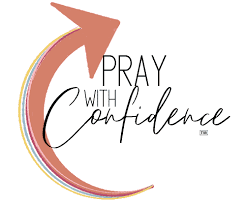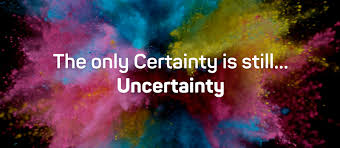Reboot, restart, reset
When our computer refuses to follow the manual commands we’re inputting, what is the first thing the Geeks tell us to do? Reboot the system! After ten unsuccessful attempts to change screens on our phone, in frustration, we shut it down and restart it. Our new high-definition entertainment center sends us confusing error messages. Our online trouble-shooter tells us to reset our television by accessing the system menu.
Reboot, restart, reset. They all have the same meaning and intent. By returning to the beginning, we will be able to continue with our desired outcome: finish a project, make a phone call, or watch the Kansas City Chiefs.
This can also be true with our lives. When things go “haywire”, do we do something different? When what we’ve done in the past, no longer works, do we continue banging our heads against the same wall and complain of the pain? What are our options? Do we reset?
A national reset
As a nation, we are entering new territory as we learn to live and lead amid pandemics and their variants. Difficult issues that existed pre-COVID, are demanding our immediate attention. These include homelessness, mental health, and social inequities, just to name a few. Natural disasters highlight the reality of global warming.
Our nation’s economic, political, and social beliefs have us alienated from each other. Families and friends are divided over what should unite us—the safety of our nation and love for our families. Unfortunately, we are leaving a legacy of anger, polarization, and division for future generations.
Musical icon, James Taylor, shares the danger of this national trend through his recording of a song from the 1949 musical, South Pacific. It is entitled, “You’ve Got to Be Carefully Taught”.
You’ve got to be taught.
To hate and fear,
You’ve got to be taught.
From year to year,
It’s got to be drummed.
In your dear little ear.
You’ve got to be carefully taught.
What can we do to impact these forces we now face in our life as a nation? We need to reset!
Our faith reset
Whatever impacts our nation, impacts us personally. That is why our faith is so critical during this time in our history.
I truly believe that we, as believers, were created for “such a time” as we are experiencing (Esther 4:14). God created us from the foundations of the world to represent Him during these challenging times (2 Tim. 1:9).
It’s often been said that “we are not saved to sit but to serve.” I’d like to add to that saying that we are also “saved to battle” for the Kingdom of God and the souls of men (2 Cor. 10:3-5: Ep. 6:10-12). Our weaponry includes God’s Word and prayer (Ep. 6:17-18).
As believers, I also contend, that we have everything we need to “live victoriously”. At In the Word Ministries we define victorious living as emotional confidence and spiritual contentment found in living in the reality and purpose of God. Our confidence is built on the nature of God (who He is); our contentment is “fruit” from the indwelling of His Holy Spirit (Gal. 5: 22-23).
Most importantly, it is key that we remember who we are in Christ and that we are God’s children. (Rom. 8:16)
Faith RESET Instructions
If you’re receiving “error messages” through feelings of despair, dissatisfaction, and hopelessness, it’s time to reset. I offer the following faith RESET instructions for your immediate use. Feel free to add your own scriptures and share them with us. I placed it in an acrostic so that you can remember it with a special scripture to fortify your position 😉
Remember God’s “past” faithfulness to you.
This I recall to my mind, Therefore I have hope. Through the LORD’s mercies we are not consumed, Because His compassions fail not. They are new every morning; Great is Your faithfulness. (Lamentations 3:21-23)
Engage by using your spiritual gifts.
As each one has received a gift, minister it to one another, as good stewards of the manifold grace of God. (1 Peter 4:10)
Spend “intentional” time in reading God’s Word and in “purposeful” prayer.
I am the vine, you are the branches. He who abides in Me, and I in him, bears much fruit; for without Me you can do nothing. (John 15:5)
Expect God to act.
The LORD says, “I will rescue those who love me. I will protect those who trust in my name.” (Psalm 91:14, NLT)
Trust in the Lord.
Trust in the LORD with all your heart, And lean not on your own understanding; In all your ways acknowledge Him, And He shall direct your paths. (Proverbs 3:5-6)
Please share these RESET instructions with friends and family, especially when they feel “some kinda of way.”











